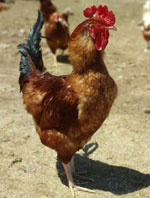Several friends of mine, all of them environmentalists, have told me they picked up Small Wonder, Barbara Kingsolver’s most recent collection of essays, but speedily put it down because the book just didn’t pull them in. At first, I had the same reaction. And then I realized: small wonder. This book wasn’t written for environmentalists. Yet because of Kingsolver’s fame and her ability to talk about complex issues in a compelling way, Small Wonder may be more successful at communicating an environmental message to a lay audience than any other book published in recent years.

Small Wonder
By Barbara
Kingsolver HarperCollins,
224 pages, 2002
As a best-selling novelist whose Poisonwood Bible was selected for Oprah’s Book Club, Kingsolver has access to a broad, mainstream audience. In the past few weeks, at least five acquaintances have asked, “Have you read the new book by the woman who wrote The Poisonwood Bible?” These are busy people who wouldn’t cross the street for just any old essay on how the wasteful use of the world’s resources by the United States contributed to the events of Sept. 11 (“Saying Grace,” “Flying,” and “And Our Flag was Still There”), the scientific reasons to be cautious about genetic engineering (“A Fist in the Eye of God”), or the importance of biodiversity (“Seeing Scarlet”). But they were eager for a word — any word — from an incredible storyteller with a gift for prose so warm and solid it feels like a rounded river rock in your hand.
Given that many people, myself included, will read anything Kingsolver cares to write, we environmentalists should consider ourselves lucky that she cares to write about living well and justly on the earth. Throughout Small Wonders, Kingsolver uses her gift for storytelling and for strong, playful language to record the details of everyday life, while drawing out the connections and implications for the world at large — and particularly the post-Sept. 11 world.

Cock-a-doodle-do-good.
In “Lily’s Chickens,” for example, she tells the delightful story of her daughter’s relationship with a rooster: “My daughter is in love. She’s only five years old, but this is real. Her beau is shorter than she, by a wide margin, and she couldn’t care less. He has dark eyes, a loud voice, and a tendency to crow. He also has five girlfriends, but Lily doesn’t care about that either.”
The chickens are part of Kingsolver’s effort to grow most of her own food, an effort that she takes to heart without taking it too seriously: “I’m trying to learn about this complicated web as I go, and I’m in no position to judge anyone else’s personal habits, believe me. … Our quest is only to be thoughtful and simplify our needs, step by step.” Yet she doesn’t hesitate to use her gift for language to highlight injustice where she sees it. In talking about the energy and resource requirements needed to produce a pound of beef, she asks, “How can all this cost less than a dollar, and who is supposed to pay for the rest of it? If I were a cow, right there is where I’d go mad.”
Kingsolver shares what she loves about growing her own food — the poetic names of the heirloom vegetables, the satisfying ache in her muscles after a long day of gardening — while relating the practice of doing so to the events of Sept. 11 and to concern for the world in general: “There has never been a more important time to think about where our food comes from. We could make for ourselves a safer nation, overnight, simply by giving more support to our local food economies and learning ways of eating and living around a table that reflects the calendar.”
Because of Kingsolver’s fame and her ability to treat weighty issues with a light touch, Small Wonder will reach people environmentalists haven’t yet figured out how to connect with. The other week, an acquaintance told me, “I loved the essays about 9/11. I wish there had been more of those. But I was also really interested in the essays about her daughter’s chickens. It made me start thinking about where my own food comes from.” Thanks to Kingsolver, the two of us had a conversation about local food options in Iowa, our homestate, and I passed on some information about how to join a local community supported agriculture project.
True, this book wasn’t written for me. But I was drawn into it and appreciated it, nonetheless, for what it taught me about how to do my job better. As environmentalists, we should all tell stories to tell the truth. We shouldn’t take ourselves too seriously. We should say more about what we love than about what we hate. And we should learn, like Kingsolver, to take heart from small wonders.



